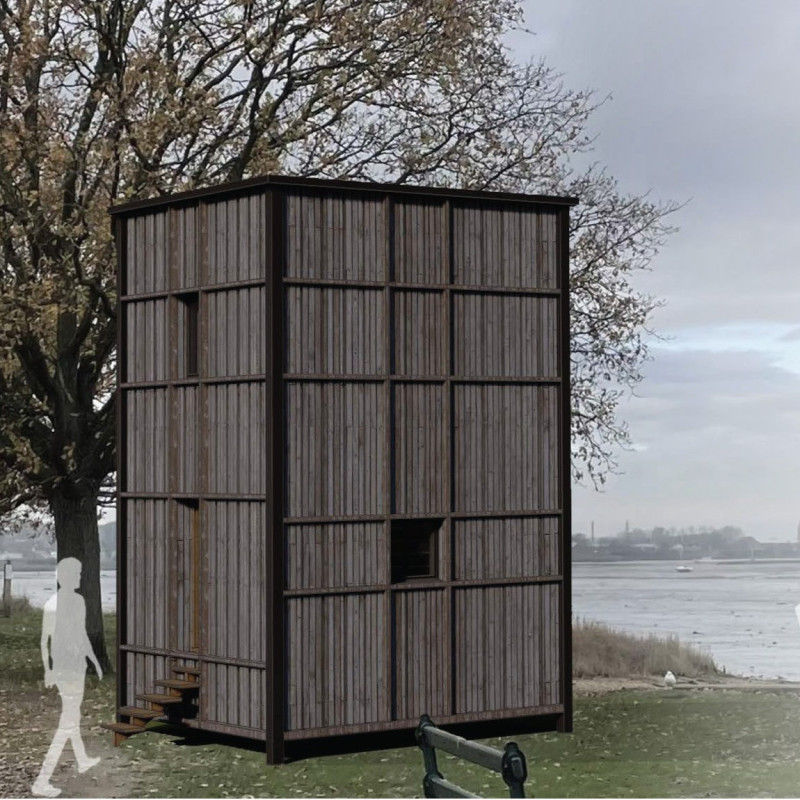5 key facts about this project
ADAPTHOME is a design focused on modular living that emphasizes sustainability and adaptability. The concept includes a series of prefabricated cubes that can be constructed off-site, leading to reduced waste and increased efficiency. The project aims to address modern housing needs while utilizing natural biobased materials, highlighting a commitment to environmental health.
ARCHITECTURAL CONCEPT
The design is centered around a grid system that allows for flexible interior arrangements. This system gives occupants the ability to customize their living spaces using standard sheet materials that are readily available. By simplifying traditional structural elements, the design promotes a high level of adaptability, making it possible for spaces to evolve as the needs of the inhabitants change.
MATERIALITY
The project adheres to 'Wells' standards, focusing on natural materials that do not contain toxic volatile organic compounds (VOCs). This careful choice enhances the quality of indoor air, contributing to a healthier living environment. The design lacks a Vapor Control Layer (VCL), which further supports a breathable structure and ensures that the indoor environment can interact effectively with the outside.
SPATIAL EFFICIENCY
Flexibility is key in ADAPTHOME, especially in how furniture is integrated into the design. Each piece serves multiple purposes, allowing for efficient use of limited space. This thoughtful approach allows different living scenarios to be accommodated comfortably, ensuring that functionality is maintained alongside aesthetic appeal.
DESIGN DETAIL
Mass production of the modular units is a key feature that allows for expansion and customization in housing solutions. Occupants can buy additional modules directly from a factory, creating opportunities for unique living arrangements. This practical aspect addresses current urban living challenges while the design details, such as the strategic integration of furniture, illustrate the focus on creating functional yet adaptable living spaces.


















































